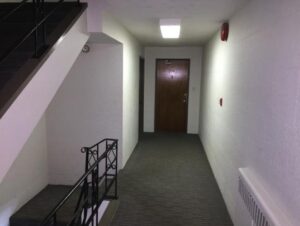New Lead Testing Requirements and the Advantage of Lead Exemption
Thank you for reading this post, don't forget to subscribe!New York City’s housing regulations have long prioritized tenant safety, especially when it comes to lead-based paint hazards. With the introduction of Local Law 111 in 2024, these regulations have become even more stringent. Local Law 111 enforces rigorous lead inspection and testing protocols for rental properties. The Lead Paint law impacts how frequently property owners must monitor, address, and document lead hazards. However, compliance doesn’t have to be overwhelming. By working with Lead and Mold Detectives, property owners can even pursue lead exemption for common areas, freeing them from these recurrent inspection and testing requirements.
What is Local Law 111?
Local Law 111 was enacted as part of New York City’s broader effort to eliminate lead exposure risks in older buildings. This law requires that property owners in buildings constructed before 1978—the year lead-based paint was banned for residential use—follow strict guidelines to inspect, test, and document any lead hazards. Local Law 111 is especially focused on protecting young children under six, who are most vulnerable to lead poisoning.
This regulation introduces a set of core requirements that include:
- Annual Inspections and Dust Testing
Property owners must conduct yearly inspections, focusing on areas with peeling paint, deteriorating surfaces, and high-traffic areas that could release lead dust. Additionally, dust wipe testing is mandatory in apartments with young children and common areas, as it confirms if lead dust has accumulated beyond safe levels. - Lead-Safe Work Practices
Any repairs, maintenance, or renovations involving lead-based paint must be conducted using lead-safe work practices. This includes using certified professionals trained to safely handle, remove, or encapsulate lead-based paint to prevent contamination. - Tenant Notification and Detailed Record-Keeping
Property owners are responsible for keeping tenants informed of inspection results and any remediation actions taken. In addition, owners must maintain thorough records of all lead testing, inspection dates, and certified lead-safe work practices to remain in compliance.
The Importance of Compliance Under Local Law 111
Failing to meet the requirements of Local Law 111 can lead to serious consequences, including significant fines, suspension of Housing Assistance Payments (HAP), and in some cases, criminal penalties. Beyond compliance, maintaining a lead-safe property protects the health of tenants, particularly young children, who face developmental and behavioral risks from lead exposure. This can help prevent you from facing lawsuits regarding lead poisoning.
Achieving Lead Exemption in Common Areas: A Strategic Solution
While Local Law 111 mandates a high level of vigilance and documentation, property owners can streamline compliance by working with Lead and Mold Detectives to obtain lead exemption status for common areas. Lead exemption is an option for areas certified as free from lead-based paint hazards, which means they no longer require routine testing or documentation under Local Law 111.
Benefits of Lead Exemption Certification:
- Reduction in Regulatory Burden
Once an area is lead exempt, property owners no longer need to perform annual inspections or dust wipe tests in these certified spaces. This leads to significant savings in both time and cost, as the ongoing requirements of Local Law 111 no longer apply to these exempt areas. - Increased Property Value and Appeal
Properties with lead-exempt certification are often viewed as safer and more compliant by tenants, landlords, and prospective buyers. Lead exemption contributes to better property marketability and reassures tenants that their building is proactively managed for safety. - Enhanced Tenant Safety and Trust
By achieving lead exemption for common areas, property owners demonstrate a proactive approach to tenant health and safety, fostering trust and satisfaction among residents.

How Lead and Mold Detectives Helps Property Owners Comply with Local Law 111 and Achieve Lead Exemption
At Lead and Mold Detectives, we provide specialized services tailored to help property owners navigate Local Law 111 and reduce their compliance workload through lead exemption certification. Here’s how we support property owners:
- Comprehensive Lead Inspections and Dust Testing
Our certified inspectors conduct thorough inspections and annual dust wipe tests to identify any potential lead-based paint hazards in compliance with Local Law 111. Using advanced testing methods, we accurately assess areas where lead dust may be present, particularly in common areas and spaces frequented by young children. - Expert Lead Remediation and Lead-Safe Certification
If an inspection reveals lead hazards, we offer EPA-certified lead remediation services. Our team follows lead-safe practices to remove, cover, or contain lead-based paint hazards, ensuring tenant safety and meeting HPD standards. Once remediation is complete, we can pursue lead exemption certification for common areas, reducing future testing requirements. - Detailed Compliance Documentation and Record-Keeping
We assist with all necessary documentation, ensuring that property owners have a complete record of all inspections, tests, and any lead-safe work conducted. Our team provides thorough support to meet HPD documentation requirements, as well as guidance on notifying tenants as required under Local Law 111. - Lead Exemption Application and Maintenance
For buildings with qualifying common areas, we handle the application for lead exemption certification. By certifying these areas as lead-free or lead-safe, we can eliminate the need for repeated testing and regulatory oversight in these spaces, simplifying compliance significantly.
Protecting Tenants and Ensuring Compliance with Lead and Mold Detectives
Local Law 111 underscores New York City’s commitment to reducing lead exposure risks and protecting tenant health. For property owners, these requirements represent an ongoing compliance challenge that can be managed more effectively with expert support and strategic approaches, such as lead exemption for common areas. By working with Lead and Mold Detectives, property owners can achieve peace of mind, knowing their buildings are both compliant and safer for tenants.
If you’re a property owner looking to simplify compliance with Local Law 111 or secure lead exemption certification for your building’s common areas, Lead and Mold Detectives is here to assist. Contact us today to learn more about our lead testing, remediation, and exemption services and how we can help you meet New York City’s latest lead safety requirements.
